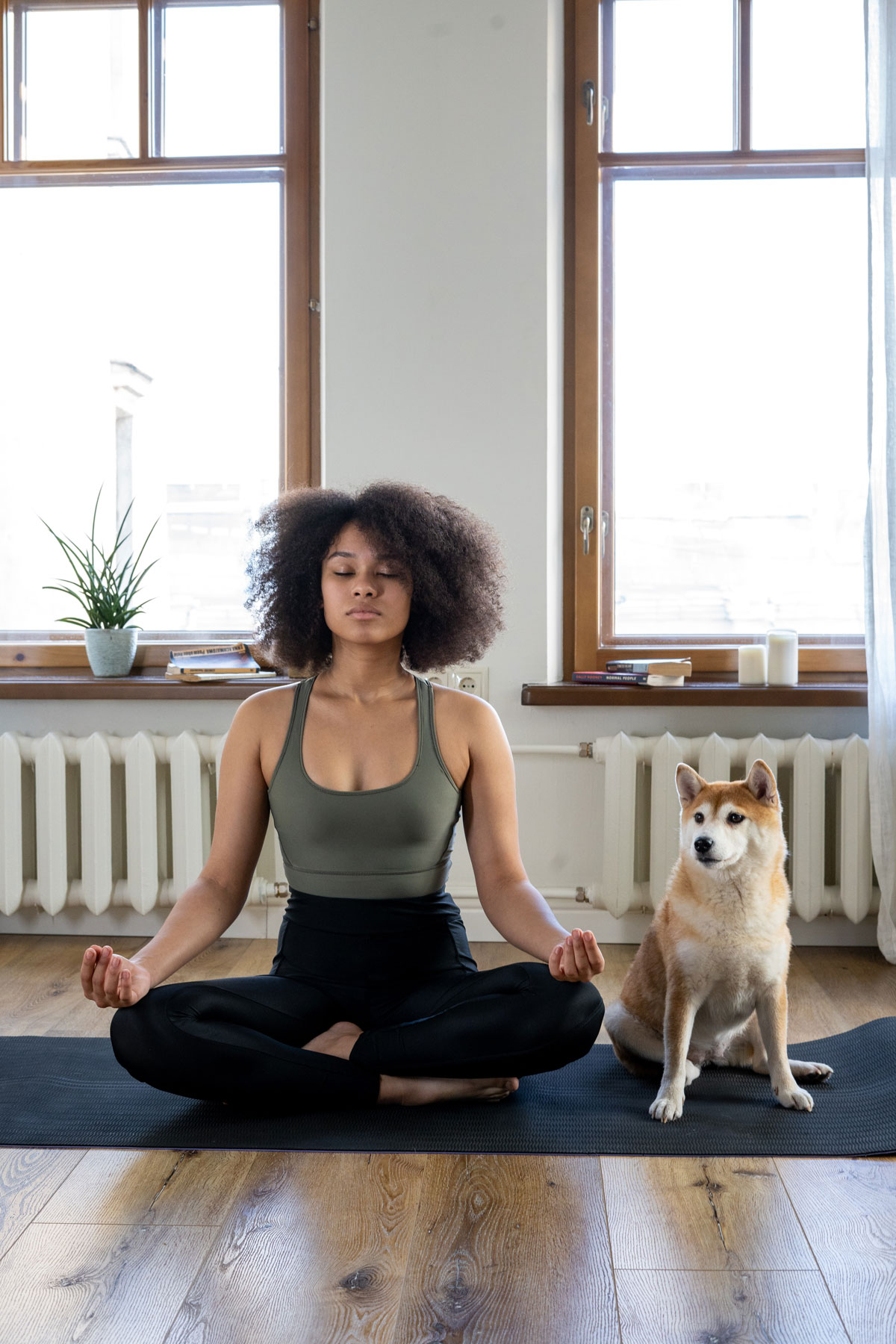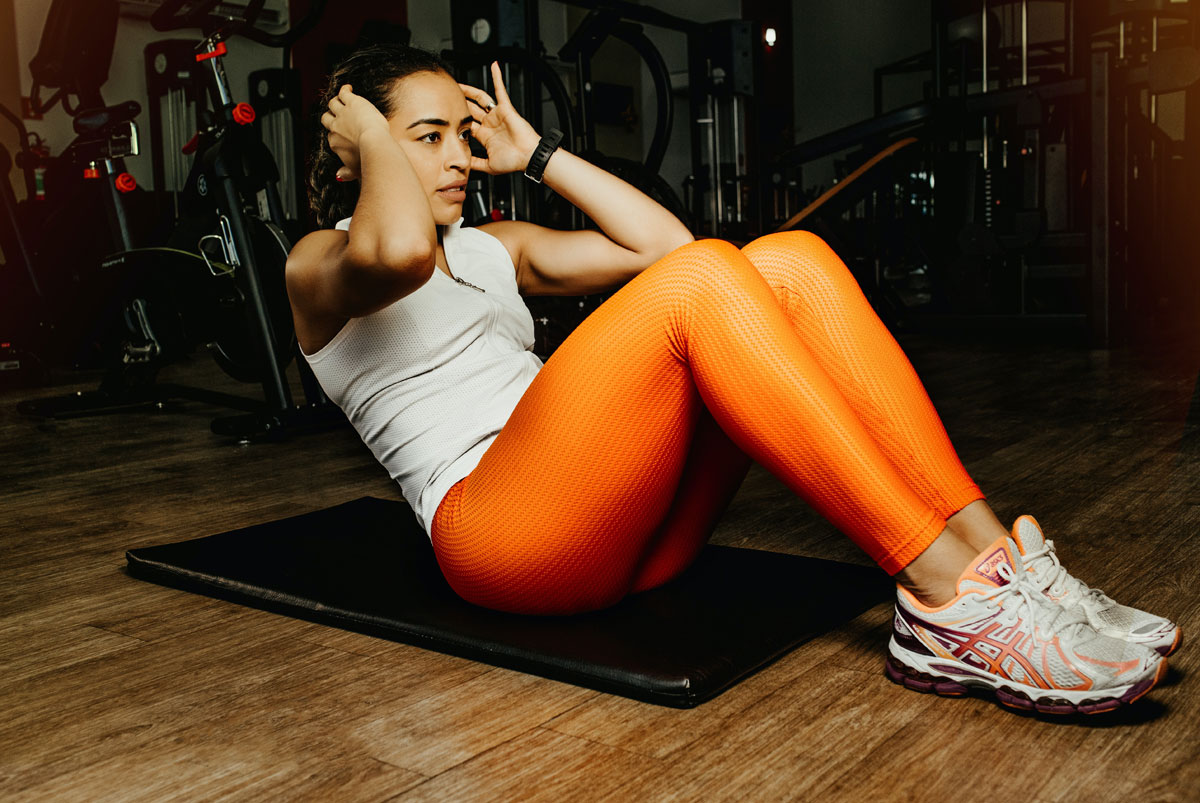
People are always looking for ways to hack exercise and make the most of it. A new study out of Skidmore College looked at the benefits of morning v. evening exercise and found that the best time of day to exercise varies by gender, goals, and chronotype. Your chronotype is the difference between being an early bird or a night owl — it’s when your body tells you to go to sleep and like your gender it can change the optimal time of day for you to exercise.
Consider your fitness goals
A small study out of Skidmore College examined the benefits of morning versus evening exercise for both women and men. Paul J. Arciero, Ph.D., professor for health and human physiological sciences department at Skidmore, was the lead investigator.“We had the groups follow the same multi-modal routine, randomly dividing them into evening and morning groups,” he says. “We found women and men respond differently to different types of exercise depending on the time of day, which surprised us.”
The study revealed that for women who want to lower blood pressure or reduce belly fat, morning exercise works best. Those women striving for upper body muscle gains, endurance, or overall mood improvement should consider evening workouts.
For the male participants, the findings were somewhat flipped: Evening exercise lowers blood pressure, the risk of heart disease, and feelings of fatigue, while similar to women, they burn more fat with morning exercise. To understand the reasons behind the results, additional research is required.
What might be most ideal, then, says Arciero, is adjusting your workouts to the time of day when you can get the most bang for your buck. “If you’re a female, then, you might want to perform your cardio workouts in the morning, and your strength training in the evening,” he says.
Early birds versus night owls
“For many people, [the best time to exercise] will depend on their chronotype,” says Jennifer J. Heisz, Ph.D., associate professor of kinesiology at McMaster University and author of Move the Body, Heal the Mind.Chronotype is your body’s natural inclination to sleep at a certain time—it’s what determines whether you’re a night owl or an early bird. For the 25% of the population that considers themselves a night owl, getting both enough sleep and enough exercise can be difficult, says Heisz.
“Exercising at night can sometimes be challenging with societal norms,” she explains. “You might naturally stay up until midnight and exercise late at night, but if you have to be out the door the next morning at 7, you’re not getting enough sleep.”
Sleep–which provides your body the necessary time to recover and make gains from exercise–should always be a priority when it comes to exercise. Regardless of research on the benefits of certain exercises at particular times of the day, your results will be diminished if it doesn’t allow enough time for sleep.
How to shift your workout time
If your goal is to change up your routine to adhere to Arciero’s findings related to exercise time of day, or simply to make exercise more convenient even if it runs against your chronotype, Heisz says it’s possible.“If you’d like to shift to a morning routine, for instance, the good news is that both the sun and exercise can reset your biological cues,” she says. “Put them together by exercising outside in the sunshine, and it’s a powerful effect.”
For older adults, whose tendency is to sometimes awaken too early and not fall back to sleep, the desired shift might be to evening exercise. “This might help with falling asleep later and staying asleep longer,” says Heisz.
If you’re worried that evening workouts will impact your ability to fall asleep, shift your workouts to gentler forms of exercise, like yoga. Avoid vigorous exercise like running, which might elevate your heart rate and make it tougher to wind down.
For evening exerciser Cully, the trick is working out on the way home from work, which is spaced far enough from bedtime not to impact her sleep. “If I went home first, I probably wouldn’t exercise,” she admits. “But then I have my whole evening to wind down.”
No matter when you prefer to exercise, what’s most important, according to Arciero, is including a multi-modal approach. For his study, Arciero developed a program that does just that, called RISE—resistance training, sprint interval training, stretching, and endurance. “We found that when doing each type of exercise once a week, compliance was higher and so was the benefit,” he explains.
For women, morning exercise is best for lowering blood pressure and reducing belly fat. Evening exercise is better for gaining upper body muscle, endurance, and overall mood improvement. One of the researchers suggests that women can get the best results by performing cardio workouts in the morning and strength training in the evening. But your exercise schedule is also affected by your chronotype and it may be difficult to do one or the other based on what your chronotype is. Personally, I am a night owl and have also been unknowingly enacting the researcher’s advice. I prefer to do cardio, like running, in the morning (but not early) because it’s harder for me to run or otherwise bounce around after a full day of work. But I feel very comfortable doing strength workouts later in the day and don’t find it affects my sleep. I do agree that having a variety of workouts improves compliance. It can get boring to do the same thing all the time and I find I’m more excited to work out when I’m doing different things each day.
photos via Pexels and credit: Pixabay, Cottonbro Studios, Jonathan Borba and Nappy














So interesting. I’d also say, exercise when you can and when you’re most set up for success. Exercising in the morning does NOT work for me…I’m so sluggish, my body feels heavy, and workouts are a real chore. In contrast right after work I am energetic, motivated, moving feels fun, and I have amazing workouts.
Same. I am slow to wake up. I factor that in on a work day, giving myself an extra hour or so just to read, eat my breakfast, stare out the window. Then I’ll do my morning stretches & yoga, get dressed & out the door. After work, I used to run but now I walk; it’s not evening exercise exactly, so it’s not keeping me up at night + it’s my work-home transition. I keep to the same routine for the WFH days. I didn’t see my goals in the study: feel good, be happy.
I work out at lunch because it’s when I fit the time in and am the most consistent.
I feel it’s great if you are able to optimize this for your schedule. However, I’d tell most people to work on fitting exercise in when they can, seeing as most people in the US aren’t moving enough.
This is great news for people who have all these options, but I maintain that the “best” time of day to exercise is any time you are willing and able to do it.
💯
Belly fat and muscle loss both coincide with menopause so, not that we have enough to deal with, apparently women of a certain age should be exercising both morning and night?
Also, might is doing a lot of heavy lifting in this article.
Yes. I hate that they even speculated about unproven conclusions bc that’s all any media outlet is going to focus on. I can already hear the morning show anchors telling us to tune in next to hear the best time of day to reduce belly fat…🙄
The only way I’ve ever increased strength is by lifting, eating over maintainence, and allowing enough time for recovery. Conversely the only time I have successfully reduced bodyfat is through the smallest caloric deficit I could get away with. Too big of a caloric deficit and my soul nopes out of everything! As far as timing goes I listen to my body if it wants to move in the AM fine, PM workout? Okay. Sustainable disciplined practice comes from listening to your body as it changes. This study sounds like it’s really reaching. Maybe the scientists need a bigger pool of subjects and then they can reach the inconclusive point that everyone’s body is ever changing. The best person to guage what works for your body is you. If something is not working after giving it time, try something new! See if that works. IMO the people who are successful at attaining and maintaining their goals are the ones who enjoy what they’re doing, switch it up often by trying something new and most importantly they pay attention and really listen to their body while fueling it, resting it and allowing ample time for recovery. They really enjoy the journey aspect of their practice as opposed to being in a hurry to reach their destination.
I find studies like this fascinating. I’m glad they are happening so we can get a better understanding of our bodies. I’ve listened to a few podcasts with Dr Stacy Sims as the guest who is leading in this area and it’s incredible how much I didn’t know about my body – mainly because women were officially labelled as an anomaly by the scientific community a long time ago so a lot of these studies are only happening now. So much of the diet and exercise culture is based on male body studies so won’t always work in the same way on women’s bodies
Agreed! I hope we get more studies like this 🙂
I love to exercise in the morning, I feel better and I perform better. Unfortunately, that doesn’t seem to be reducing my ‘belly fat’ area but my BP is low and I am a definite morning person, so this study seems to match up. Interesting stuff.
I am neither a morning person nor an evening person, I’m a 10A-2P person.
My best guess for the fat reduction from morning exercise is that it has to do with diet and mornings being a time when you are coming out of an overnight fast. Instead of burning the carbs you ate for lunch as exercise fuel you are burning fat. But also, I don’t care and I feel like all of these exercise and diet hacks that are meant to be helpful more often just deter people from listening to their bodies and eating and exercising when and how it suits them. As others said above, you should exercise when it fits your schedule and when it makes you feel best. If you force yourself into a schedule because you *should* be doing it that way it’s not going to be sustainable.
I would think that too. I am limit type 2 and am closely monitoring my blood sugar. After a morning workout after fast I’m finding that my blood level sugars are actually higher! Not sure what to do. In my case maybe working out later in the day might be better for me.
But like you said work out when you can!
This study started with a sample size of 30 women and 26 men. Only 26 of the women and 20 of the men completed it. The study only lasted for 12 weeks. The error bars on this study are huge. Don’t base your life on junk science.
I used to exercise in the morning and it helped me be super consistent and I loved it. Then I took a 3 year COVID break, now I’m back at the gym, but trying to fit it in after work. It’s not going so well. It’s so much easier to let a bad day at work get to me, and I feel awful leaving my doggo at home that extra hour or so. We’re all doing our best here lol.